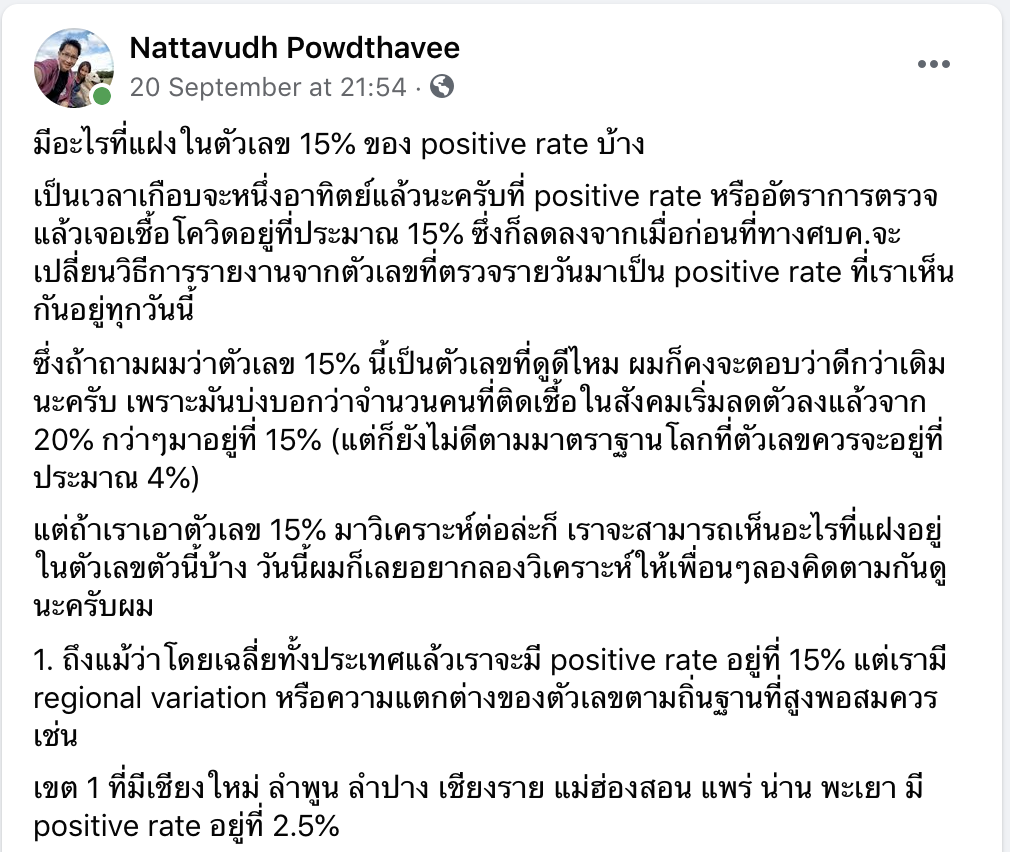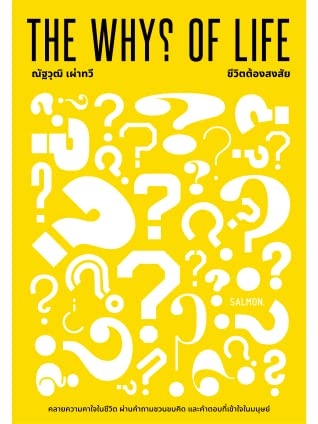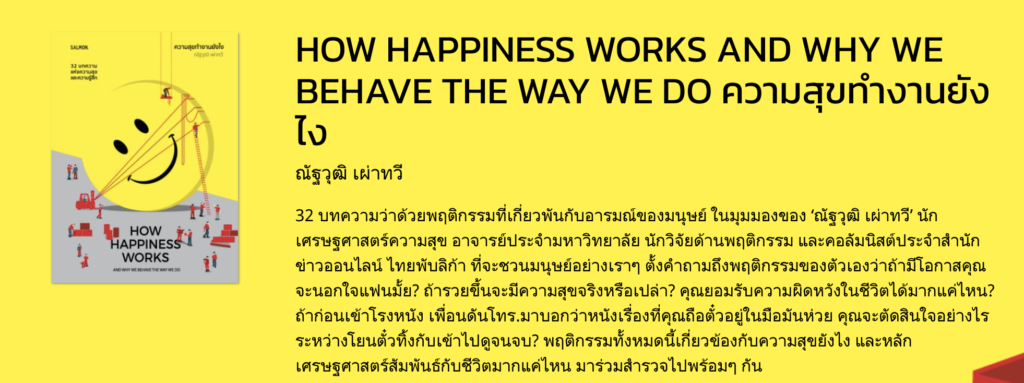The Thai government’s mishandling and miscommunication of the Covid-19 pandemic has been the root of many people’s frustrations, healthcare collapse and business ownership challenges. Granted, no country has dealt perfectly with the pandemic; it is one for a reason.
One thing citizens in a functioning democracy often ask for, is transparency and empathy from their leaders. The two things have been hard to come by, which leaves business leaders and prominent voices of Thai society to their own devices in voicing discontent, executing actionable plans to get Thailand back on track and so forth.

One notable public figure in voicing Thailand’s lack of transparency in presenting Covid-19 statistics, is Professor Nattavudh Powdthavee, Professor of Behavioural Science at Warwick Business School, United Kingdom. He has since given interviews on various Thai media platforms, from The Standard to Mission to The Moon and has crafted a widely circulated Covid-19 exit strategy playbook for Thailand.
His insightful posts about statistics and data of the CCSA’s representation have also been shared widely online.

BitesizeBKK had the opportunity to do a long distance sit down with Professor Nattavudh to pick his brain about Covid-19 strategy, the importance of communication and of course, behavioral economics and the true measure of happiness.

Pandemic Strategy: By the Numbers
We start off the conversation by discussing Thailand’s representation of daily cases.
“I can imagine why the government would not want to scare people,” says Nattavudh. “It’s not an easy problem to solve and I do empathize with them. However, they also have their own agenda.”
The numerous stages of reopening plans come to mind.
It is hugely important to present the truth, as people will trust the government and know what to do, and they can look after themselves in a more efficient way. “It’s so important to see the real data.”
For Nattavudh, the most important metric to look at for a proper exit strategy is excess mortality rate and percentage of positive rate, which should also include ATK tests.
“If we compare it to the UK, the information presented is very transparent. The road map for reopening was clearly laid out for the people. The UK tested about 1 million people a day, with a daily positive rate of 20% during the peak January,” says Nattavudh.
“So, you can imagine in Thailand, with the same positive rate as the UK at its peak of nearly 20%, it could be a similar situation, but we have no idea of the real number.”
From a statistics point of view then, we are gradually reopening with a distorted view of reality. However, from a psychological point of view, the resurgence of travel and dining out can make us feel like the situation is actually improving.
How can behavioral economics explain Covid-19?

One thing we believe is that the pandemic has exposed the DNA of countries. For Thailand, it highlights the cracks in our military government, corruption and the class system. We have seen accounts of VIPs gaining access to Pfizer vaccines, or even regular people who pay to bypass the 9pm curfew in Bangkok. This is just the way it is.
This is starkly different to developed countries in the west. In the UK, people have to wait for their age groups to be eligible for a Covid-19 vaccine. Even Prince William waited his turn for the under 40s slot.
This is a very unique scenario. Because in western countries, those in vulnerable groups (senior citizens, those with chronic illness and conditions) have to be fully vaccinated before the government can even begin to think about reopening.
“The majority of Thailand’s over 60 group has yet to be fully vaccinated. This is mind boggling to me.”
We can actually trace back a lot of government fueled errors to Thai culture, especially if we look through the lens of Professor Nattavudh’s speciality in behavioral economics.
“It’s understandable that most Thais don’t like to lose face,” he says. “Like many governments around the world, our government themselves also don’t like to admit when they made an error, which explains how decisions have been communicated to the public.”
People make wrong decisions all the time, but the important thing is how we rectify and come back from that. This is something we have not done well. Even now, the government has yet to come out to admit any mishaps and continue to defend each decision-even when met with criticism.
“Thailand has become a victim of our own success,” says Nattavudh. “We were relatively Covid free last year. Now, Thailand sees other countries reopening and we are feeling pressured to do the same. It’s more of an emotional than a rational reaction.”
Covid-19 management is essentially to do with behavior, which is why the field of behavioral economics is so relevant when executing policies.
“Lockdowns, getting vaccinated, setting curfews and encouraging social distancing is all about human behavior,” says Nattavudh. “If you don’t understand behaviors, then you won’t be able to manage this effectively.”
Our government makes a lot of sweeping announcements of restrictions that forgo natural human behavior, and expects people to follow the rules. However, it doesn’t work in reality. One example is when the government asked people to stay home and restrict domestic travel, but don’t outright forbid it. The nature of human behavior will be to simply travel regardless, because technically, it’s still allowed.
The Communication Struggle
“Countries that handle themselves well typically have empathetic leaders,” says Nattavudh. “New Zealand’s Jacinda Arden is an example of this, she’s extremely well spoken and is always empathetic.”

(source: Glasgow Caledonian University)
It’s also worth noting that oftentimes, leaders who communicate effectively are women.
“We know from research that it’s often less to do with the message, and more to do with the messenger. For the people who already don’t believe you, they won’t listen to you regardless. Those who already trust in you will believe anything you say, regardless of whether it’s true,” says Nattavudh.
One of the biggest hurdles to effective Covid-19 management, or any crisis of a global or national level-is simply related to communication and articulation. When a leader is seen as not sympathetic or not held accountable, the element of trust is removed by default.
“I don’t think we have a lot of accountability, and we’re not correcting mistakes, which just makes it all the more challenging.”
The politicizing of vaccines also falls under the importance of communication. We ask Professor Nattavudh about how he views different vaccine efficacy and how each vaccine ranks against the other.
“The best vaccine is what you have immediate access to. You can argue politically that the government should bring other vaccines in, but you should also take what you have available first,” he explains.
What about the efficacy between different vaccines? What can statistics tell us about efficacy studies?
“All of these studies are conducted in highly controlled groups, with some of them done at different times and stages, so it’s difficult to assess them against each other.It’s difficult to compare, and any difference at all is hard to apply to the individual.”
For example, one person may have received two doses of the AstraZeneca vaccine and be highly protected, whilst one person may have very low antibodies. You cannot use the average efficacy rate and apply it to an individual.
“If reading all this news means I am going to wait for the perfect vaccine, that’s a bad decision. We underestimate the risk that’s surrounding us.”
Sometimes, we give too much attention to comparisons.
Thailand’s Post Pandemic reality
“Before we get to a post pandemic reality, we will likely see more fatalities. Many of which will be unrecorded. Some groups will struggle to bounce back,” says Nattavudh.
Professor Nattavudh doesn’t actually like to use the word post pandemic, though, as it draws too neat of a line between the past and future.
“We will have to adapt and live with Covid-19, it’s not going to have that finality. Herd immunity will not be completely achieved due to the nature of the pandemic. Although from an economics point of view, people will keep going,” he says. “Tourism makes up 20% of our GDP, and some countries may not allow their citizens to travel here. Then, we risk getting left behind.”
The Economics of Happiness
Aside from writing thoughtful pieces on the Thai government’s handling of the pandemic, Professor Nattavudh’s day job is teaching behavioral economics at Warwick Business School, with a speciality in happiness economics.

(source: Minimore)
This field has remained relatively unknown in Thailand until recently, with the younger generation of Thais becoming more vocal than their predecessors and questioning why and how.
“This is perhaps why the younger generation of Thais have become exposed to my work and field, because the study of behavioral economics drives these questions about society,” says Nattavudh.
Happiness economics is a fascinating field that can be used to explain a lot about our decisions, whether that be in government policies or even how we look back on our holidays.
“There’s a thing called peak end rule, a cognitive bias that impacts how you remember past events. It explains how people tend to remember the end of a trip rather than the beginning or the middle, which is why some people book the best accommodation for the end of the holiday,” says Nattavudh.
His latest book, The Whys of Life puts all these theories and cognitive examples into real world situations, and serves to explain why certain decisions impact our well being.
“If you have money, spend it on experiences rather than materials. Experiences have a much greater impact on your well being and happiness,” he says.
If you can measure economic growth with the GDP, then how do you actually quantify happiness? Well, it’s often done by surveys issued by a government agency . The UK’s Office of National Statistics actually asked the British population about their satisfaction with life, career and general well being. They actually managed to track the population’s progression of well being over time to get a real sense of happiness and contentment. The unit is then able to draw very sophisticated analysis from this.
Tracking happiness is not just a privilege enjoyed by developed countries, either.
“Countries in Latin America are doing it, Africa has the Afrobarometer. Even countries in Asia, like Thailand, have measured a population’s happiness. This is something all governments should strive to do.”
Then comes the question of how we stay happy and content in an increasingly complex world? Professor Nattavudh’s answer is encouraging.
“People are naturally resilient, and we are optimistic people. There’s this thing called optimism bias, which suggests that only the optimist survives. On average, more people are optimistic than not.”
For him, people will continue to survive and find their own ways to be happy in an increasingly complex world. Again, it comes back to the very nature of human beings and how we adapt and bounce back from personal crises and global pandemics.
Things will eventually get better, we choose to take the optimist view on this.
The Whys of Life ชีวิตต้องสงสัย by Nattavudh Powdthavee is now available in top bookstores or online here.




